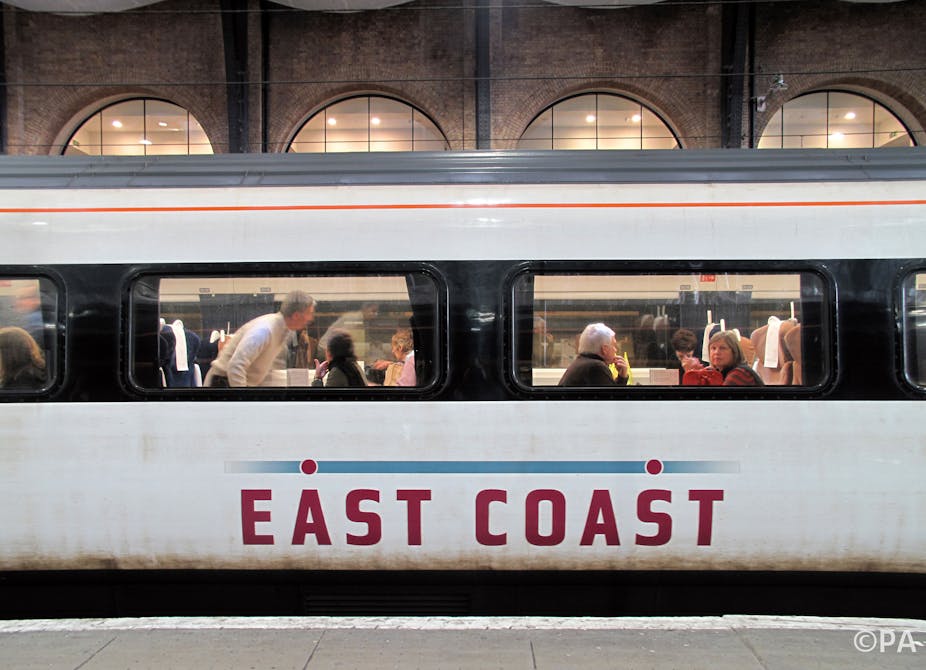To the surprise of many speculative investors in the share market who had tipped Eurostar, Inter City Railways, a joint venture between Stagecoach and Virgin, won the franchise to run the East Coast mainline rail route. The price of the contract is £3.3 billion and a promise has been made to invest £140m in the route over eight years. There will also be 23 new services between London and destinations including Huddersfield, Sunderland and Middlesbrough.
Inevitably, this outcome has attracted fierce criticism from the Labour party and trade unions, who see it as reprivatisation driven by the government’s ideological agenda. But the conclusion of the contract will come as a relief to Prime Minister David Cameron.
For the Conservative party, the sale helps avert a potentially tricky debate about the future of the East Coast mainline as we go into 2015 and the general election. Yet the sale sets an akward trap for the opposition leader, Ed Miliband. While this sale should give the Labour top team ammunition to criticise the government, it seems speaking out against its privatisation is not easy.
An efficient public service
Since 2009, the East Coast mainline rail route has effectively been in public ownership, after two previous private train operators were forced to hand back the keys due to financial difficulties. As an interim arrangement, the publicly owned Directly Operated Railways (DOR) has been operating the service effectively and profitably. Although receiving the lowest government subsidy of any operator, DOR has returned more money back to the state than any other train operator. In 2013-2014 it paid £217m to the treasury, and since 2009 East Coast has returned more than £1 billion to the the taxpayer, all of which will be re-invested in the service.
For those who have been opposed to rail privatisation from the outset, the collapse of the East Coast franchise in 2009 was the loose brick in the wall of privatisation they had dreamed of. If it could be demonstrated that a public sector company could deliver a decent service for the public benefit then the road to full renationalisation of the railway network might at last be opened.
For Labour however, the East Coast line has almost been a successful bit of socialist politics that dare not speak its name. Labour has indicated that it will reform the rate of increase in consumer pricing, while clearing the way for public mutuals or co-operatives to bid in the future on a level playing field with private bidders. DOR was excluded from the current bidding process.
But this will seem rather weak and coy to opponents of contemporary privatised railway management in particular and the whole notion of small-government-big-market politics in general. However, the Labour leader has sought to be all things to all sides by ruling out any return to the days of 100% state ownership of British railways, while holding out hope of major reform. As Ed Miliband recently told the Daily Telegraph:
There is a balance to be struck here because there are some benefits you can have sometimes from competition and we are not gong back to the old monolithic model that was British Rail.
This stance may have denied Labour an increasingly rare opportunity to put the government on the back foot over the East Coast franchise. On the one hand, any hint of renationalisation of railways would immediately generate the “Red Ed” headlines he’s been trying to distance himself from. But on the other hand, the government is very vulnerable to the charge that extensive foreign ownership across all of the nation’s utilities means that British consumers are paying through the nose for services whose profits are being used to hold down household bills elsewhere in Europe.
The East Coast contract might have been the perfect platform to make this argument. Of course, having made this argument, Labour would naturally be questioned as to whether it intends to carry the crusade into the other sectors which have enabled foreign control through privatisation – particularly energy – and this may have been a platform too far.

